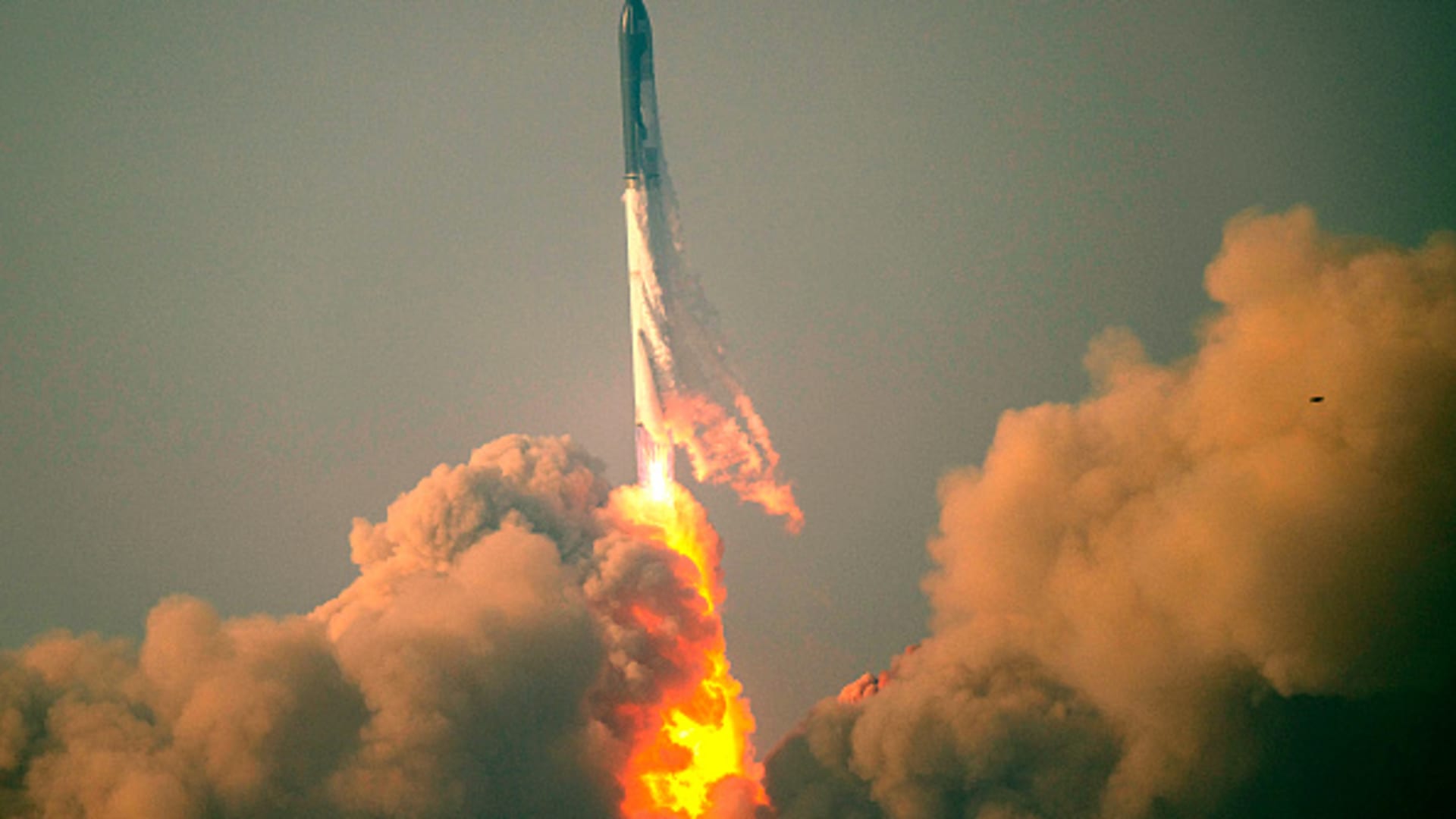The Federal Aviation Administration said Wednesday that SpaceX is not yet clear for another test flight of its Starship Super Heavy launch vehicle.
The Washington Post | The Washington Post | Getty Images
The Federal Aviation Administration on Friday said Elon Musk’s SpaceX must keep its Starship Super Heavy rocket grounded, saying the company needs to take 63 corrective actions before it is cleared for another test flight.
The FAA has now wrapped its probe into the April launch, which saw the rocket explode mid-flight.
SpaceX CEO Elon Musk had claimed Tuesday, in a post on X (formerly Twitter) which he now owns, that “Starship is ready to launch, awaiting FAA license approval.”
In an e-mailed statement, the agency said a final report “cites multiple root causes of the April 20, 2023, mishap and 63 corrective actions SpaceX must take to prevent mishap reoccurrence.”
The corrective actions include: “redesigns of vehicle hardware to prevent leaks and fires, redesign of the launch pad to increase its robustness, incorporation of additional reviews in the design process, additional analysis and testing of safety critical systems and components including the Autonomous Flight Safety System, and the application of additional change control practices.”
In order for SpaceX to resume Starship launches at its facility in Boca Chica, Texas, the company will need to “implement all corrective actions that impact public safety,” as determined by the FAA, and to apply for and receive a “license modification from the FAA” that addresses all of its safety, and other environmental regulatory requirements.
SpaceX did not immediately respond to a request for comment.
FAA oversaw the SpaceX mishap investigation while NASA and the National Transportation Safety Board served as official observers. A full mishap investigation report will not be made public because it contains sensitive data including U.S. export control information.
The first Starship launch saw the nearly 400-foot-tall rocket fly for more than three minutes — but it lost multiple engines, caused severe damage to the ground infrastructure and failed to reach space after the rocket began to tumble and was intentionally destroyed in the air.
The test flight and explosion left a crater in the ground, flung concrete debris into nearby tanks and other equipment, and impacted sensitive habitat that is home to some endangered wildlife. It also sparked an approximately 4-acre fire on state park land.
Environmental and cultural-heritage nonprofits sued the FAA after the first Starship test flight, alleging the agency failed to conduct an appropriate environmental review before authorizing SpaceX to move ahead with its launch plans in Boca Chica. SpaceX joined the FAA as a defendant in that matter.
The Starship program is critical to the future of the company’s Starlink satellite internet business. A global network of more than 4,000 satellites, SpaceX’s Starlink provides internet service to more than 50 countries.
While the service has enabled battlefield communications in Ukraine, Musk has also used Starlink to influence battlefield strategy and outcomes there. He ordered engineers to withhold Starlink’s satellite network service over Crimea in order to thwart a Ukrainian attack on Russian warships, according to a new biography of the CEO.

